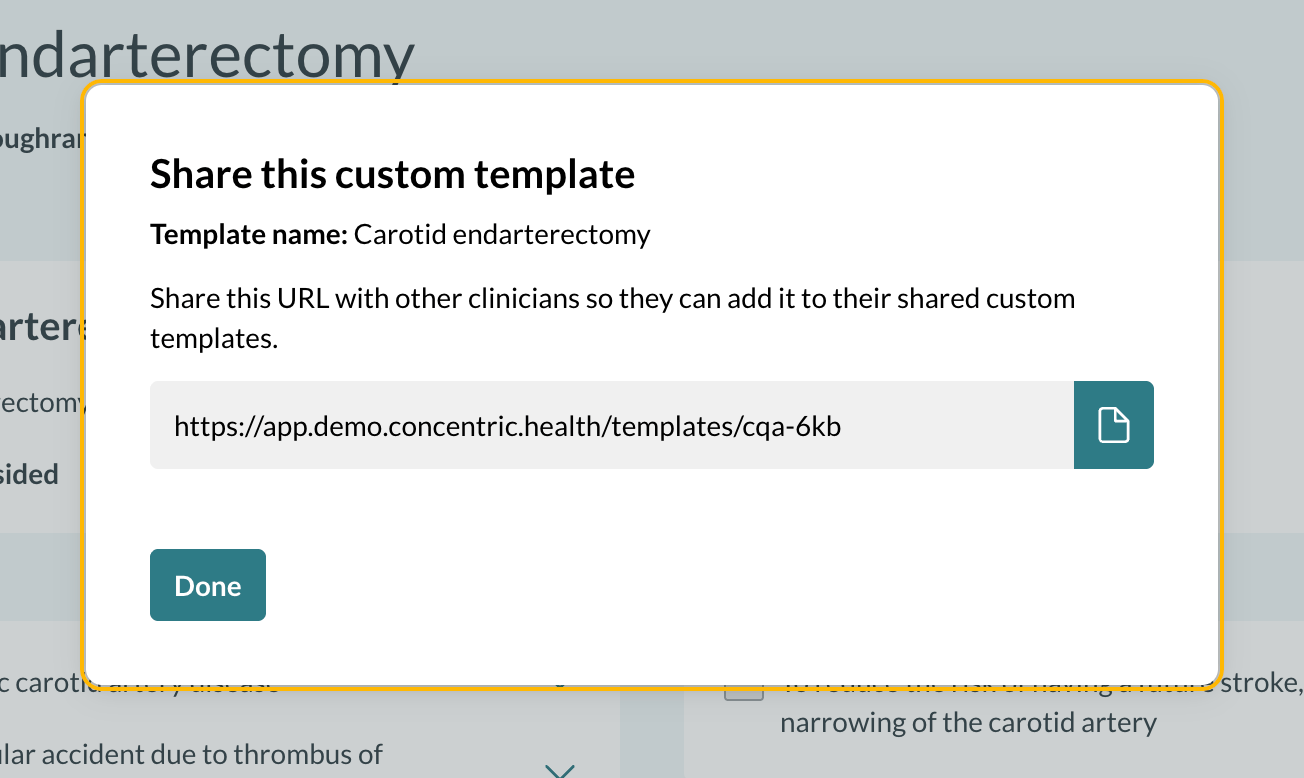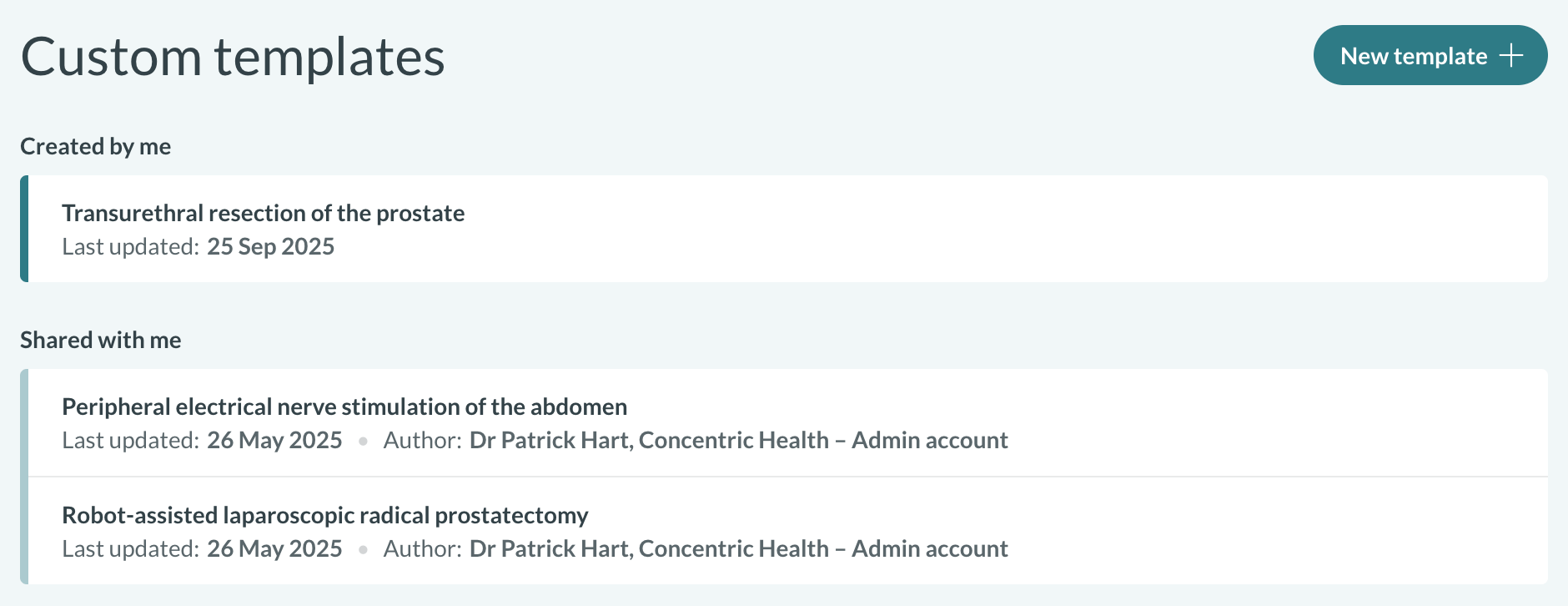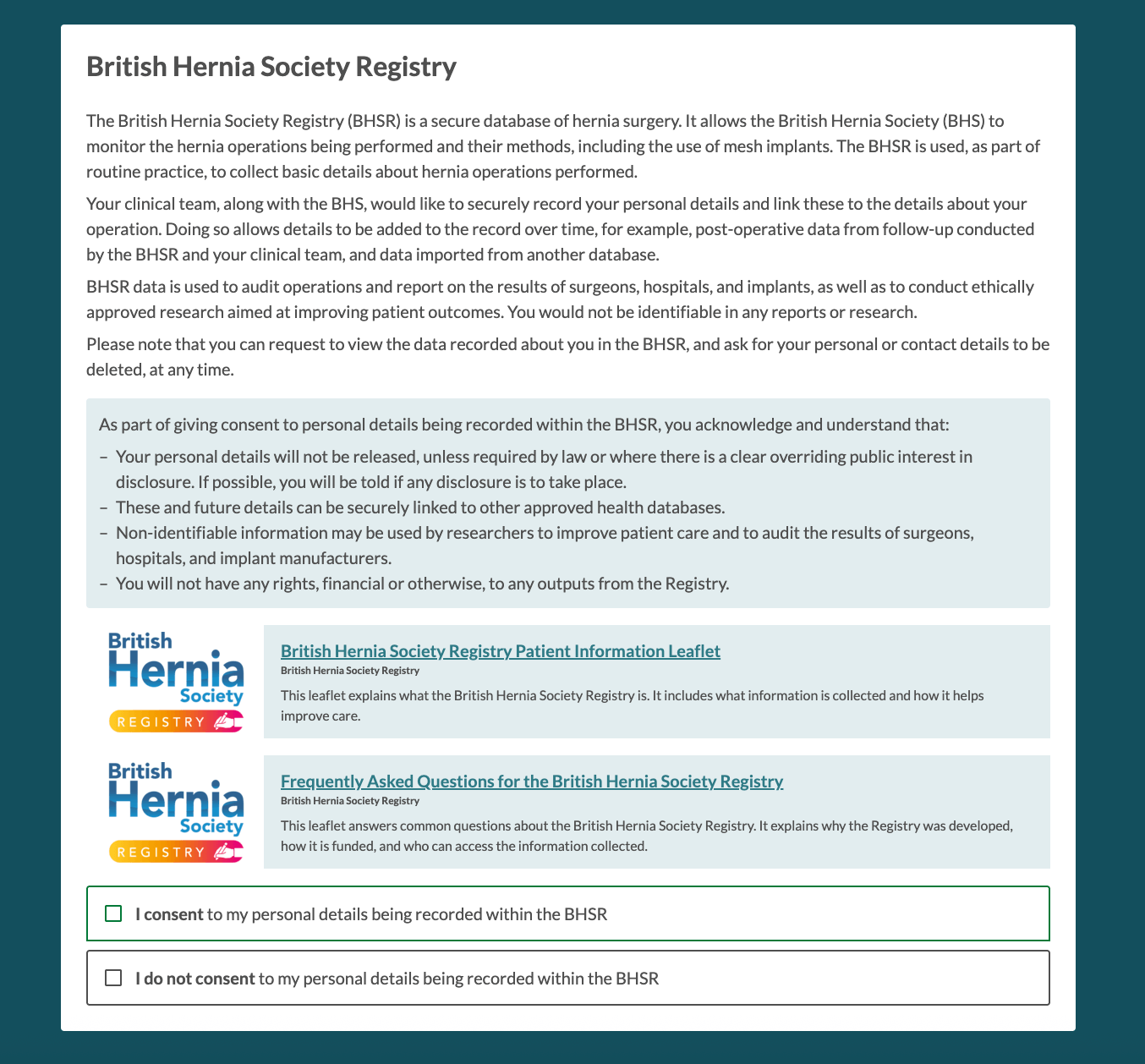Our first big update to custom templates since launch last year: sharing! Clinicians can now share their custom templates with colleagues across the same healthcare organisation.
Sharing is simple: create or open a template, click Share, and copy the link. A colleague can then use that link to add the template to their own list. Once you’ve added a shared template, your custom templates will be grouped into two lists: templates you’ve created and templates shared with you.
Authors remain in control of their templates, helping teams standardise their approach while still making the most of custom template flexibility. Our custom templates guide will be updated soon with further details and an updated video guide.
Sharing modal:

Custom templates page with templates you’ve created and templates shared with you:

Recent episodes improvement for high-volume specialties
Previously, ‘recent episodes’ showed the last five consent episodes you’d interacted with. The intention was that this would be useful for teams revisiting the same consent episodes multiple times on the path to theatre, and in many cases, it worked well.
However, for lists with more than five patients, ‘recent episodes’ was less dependable. It could be frustrating to look in the list only to find the episode you needed wasn’t there — meaning a manual search by ID number was still required.
We’ve now updated this so that up to 20 episodes from the last 24 hours are shown. ‘Recent episodes’ functionality can now be used consistently for its intended purpose, even in specialties with high-turnover lists.
British Hernia Society Register additional consent
We’ve added a new additional consent for patients to agree to inclusion in the British Hernia Society Register. This has been prepared in collaboration with the British Hernia Society Registry subcommittee, and our thanks go to them for their support. The additional consent has been added to the relevant templates within Concentric.

Launch in patient context – passing user details
We’ve extended our ‘launch in patient context’ integration, allowing user details to be passed through from the electronic health record. If a previous session for a different user is still active, Concentric will now automatically log out that user and guide the new user through the authentication flow, rather than relying on the previous user to log out correctly.
This update makes the integration more robust and easier for organisations embedding Concentric within their electronic health record as an iframe. If your team would like to update an existing setup or begin using ‘launch in patient context’ now that this functionality is available, please get in touch with our integrations team.